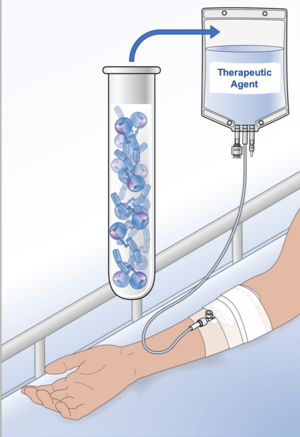Lessons from nature: engineering serine proteases for therapeutic purposes
In this public-private consortium, the Leiden University Medical Center and VarmX B.V. joined forces to engineer novel variants of serine proteases that are resistant to direct oral anticoagulants (DOACs) while maintaining part of their functionality in clotting.
Thrombosis, an ‘unwanted’ blood clot, is the leading cause of mortality and morbidity in the western world, and the direct oral anticoagulants that target blood clotting proteases are among the most commonly used drugs to prevent or treat thrombosis. Efficacious reversal of the anticoagulant effect of these drugs is a prerequisite for safe drug usage, which is underscored by the fact that the risk of major bleeding inherent to anticoagulant treatment is 1-3% per year, with one-in-five cases being fatal. While reversal agents have been approved for the current generation of active sitetargeted direct oral anticoagulant drugs, these are lacking for the second generation of DOACs that is currently in development.
By introducing naturally occurring divergent structural elements that surround the active site of highly conserved chymotrypsin-like serine proteases into specific blood coagulation proteases, we have selectively tweaked the latter in such a way that synthetic small-molecule inhibitors no longer engaged the modified active site. In contrast, active site substrates could still engage the active site for protease-mediated catalysis, thereby promoting clotting to some extent. These novel proteases form a framework for further development of therapeutic proteins to restore hemostasis in individuals treated with direct protease-inhibiting anticoagulants suffering from a bleeding event or requiring acute surgery.



